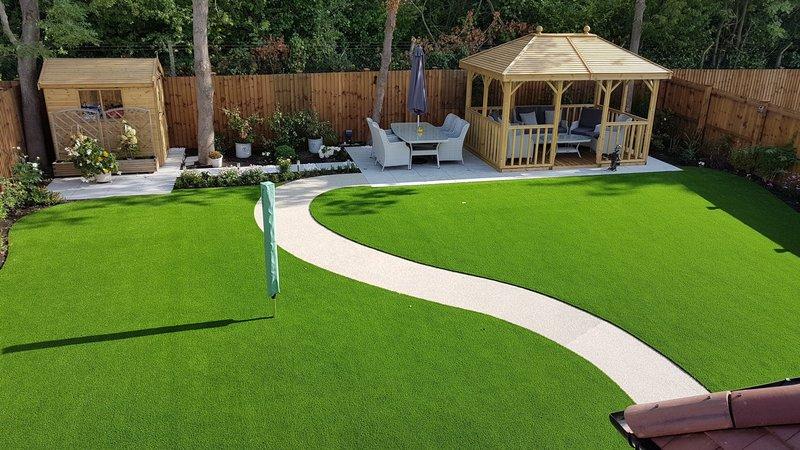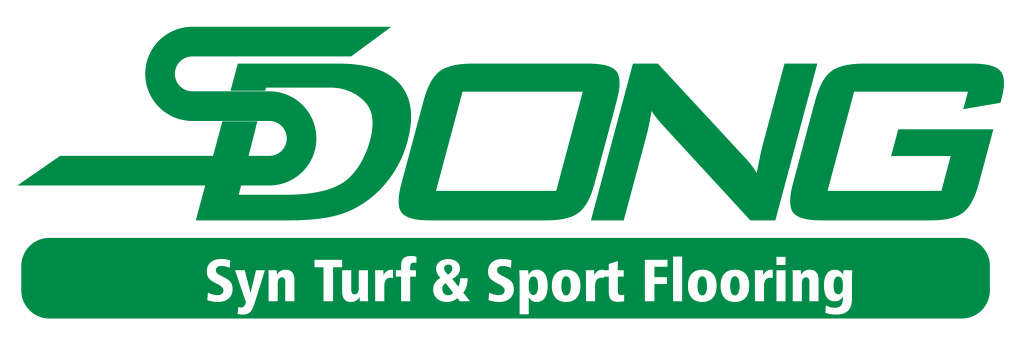
In recent years, the demand for artificial grass has surged as more individuals and businesses seek sustainable landscaping solutions. Artificial grass wholesale offers a compelling alternative to traditional grass lawns, combining aesthetic appeal with environmental consciousness. In this article, we delve into the eco-friendly aspects of artificial grass wholesale, exploring its benefits and implications.
Understanding Artificial Grass Wholesale
Artificial grass, also known as synthetic turf or artificial turf, is a manufactured surface designed to mimic the look and feel of natural grass. It is typically composed of synthetic fibers made from materials like polyethylene or polypropylene, supported by a base layer of infill material such as silica sand or recycled rubber granules.
Artificial grass wholesale involves purchasing synthetic turf in bulk quantities, making it an economical choice for landscaping projects of various scales. This approach not only offers cost savings but also allows for consistency in quality and appearance across different areas.
Environmental Benefits
1. Water Conservation
One of the most significant environmental advantages of artificial grass is its minimal water requirement. Unlike natural grass, which demands regular watering to maintain its lushness, synthetic turf requires no irrigation once installed. This water-saving feature is particularly crucial in regions facing water scarcity or strict water conservation measures.
2. Reduced Chemical Usage
Traditional lawn maintenance often involves the use of fertilizers, pesticides, and herbicides to control weeds and promote growth. These chemicals can leach into the soil and groundwater, posing environmental risks. With artificial grass, there is no need for such chemical treatments, contributing to a healthier ecosystem and reducing chemical runoff.
3. Elimination of Lawn Equipment Emissions
Maintaining a natural grass lawn typically involves regular mowing, trimming, and edging, all of which require gasoline-powered equipment that emits pollutants. By switching to artificial grass, homeowners and businesses can minimize their carbon footprint by reducing the use of fossil fuel-powered lawn care machinery.

Title: Going Green: The Eco-Friendly Appeal of Artificial Grass Wholesale
In recent years, the demand for artificial grass has surged as more individuals and businesses seek sustainable landscaping solutions. Artificial grass wholesale offers a compelling alternative to traditional grass lawns, combining aesthetic appeal with environmental consciousness. In this article, we delve into the eco-friendly aspects of artificial grass wholesale, exploring its benefits and implications.
Understanding Artificial Grass Wholesale
Artificial grass, also known as synthetic turf or artificial turf, is a manufactured surface designed to mimic the look and feel of natural grass. It is typically composed of synthetic fibers made from materials like polyethylene or polypropylene, supported by a base layer of infill material such as silica sand or recycled rubber granules.
Artificial grass wholesale involves purchasing synthetic turf in bulk quantities, making it an economical choice for landscaping projects of various scales. This approach not only offers cost savings but also allows for consistency in quality and appearance across different areas.
Environmental Benefits
1. Water Conservation
One of the most significant environmental advantages of artificial grass is its minimal water requirement. Unlike natural grass, which demands regular watering to maintain its lushness, synthetic turf requires no irrigation once installed. This water-saving feature is particularly crucial in regions facing water scarcity or strict water conservation measures.
2. Reduced Chemical Usage
Traditional lawn maintenance often involves the use of fertilizers, pesticides, and herbicides to control weeds and promote growth. These chemicals can leach into the soil and groundwater, posing environmental risks. With artificial grass, there is no need for such chemical treatments, contributing to a healthier ecosystem and reducing chemical runoff.
3. Elimination of Lawn Equipment Emissions
Maintaining a natural grass lawn typically involves regular mowing, trimming, and edging, all of which require gasoline-powered equipment that emits pollutants. By switching to artificial grass, homeowners and businesses can minimize their carbon footprint by reducing the use of fossil fuel-powered lawn care machinery.
Long-Term Sustainability
Beyond its immediate environmental benefits, artificial grass wholesale offers long-term sustainability advantages. Synthetic turf is highly durable and resilient, capable of withstanding heavy foot traffic and adverse weather conditions without the need for extensive maintenance. This durability translates to reduced resource consumption over time, as it eliminates the need for frequent replacements and intensive upkeep associated with natural grass lawns.
Conclusion
Artificial grass wholesale presents a compelling proposition for environmentally conscious consumers and businesses seeking sustainable landscaping solutions. By minimizing water consumption, reducing chemical usage, and promoting long-term sustainability, synthetic turf offers an eco-friendly alternative to traditional grass lawns. As the demand for environmentally sustainable practices continues to grow, artificial grass wholesale emerges as a practical and aesthetically pleasing choice for greener landscapes. Embrace the eco-friendly appeal of artificial grass wholesale and pave the way towards a more sustainable future.



